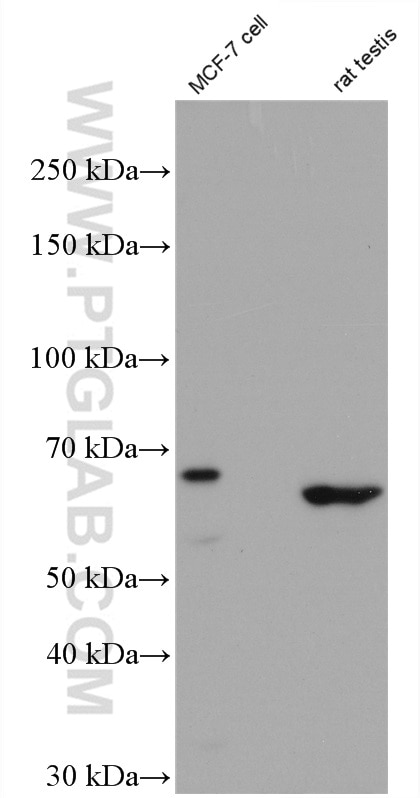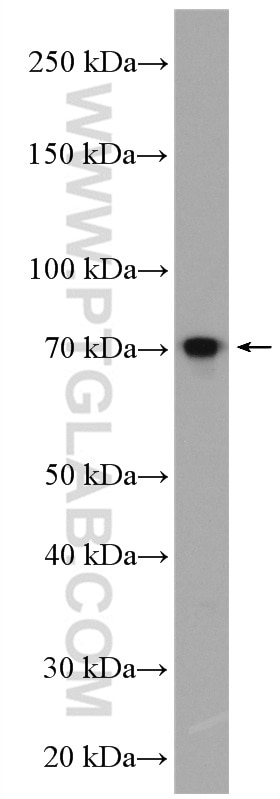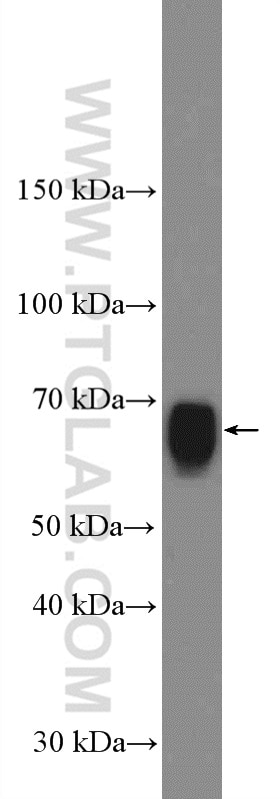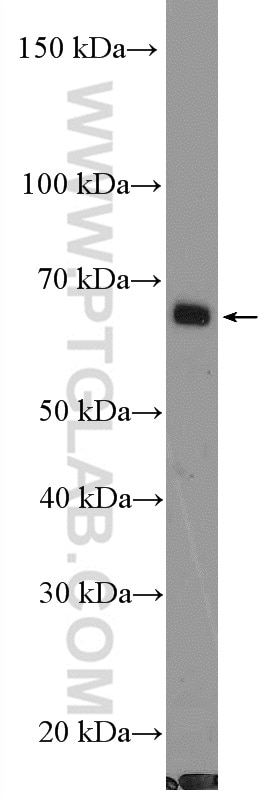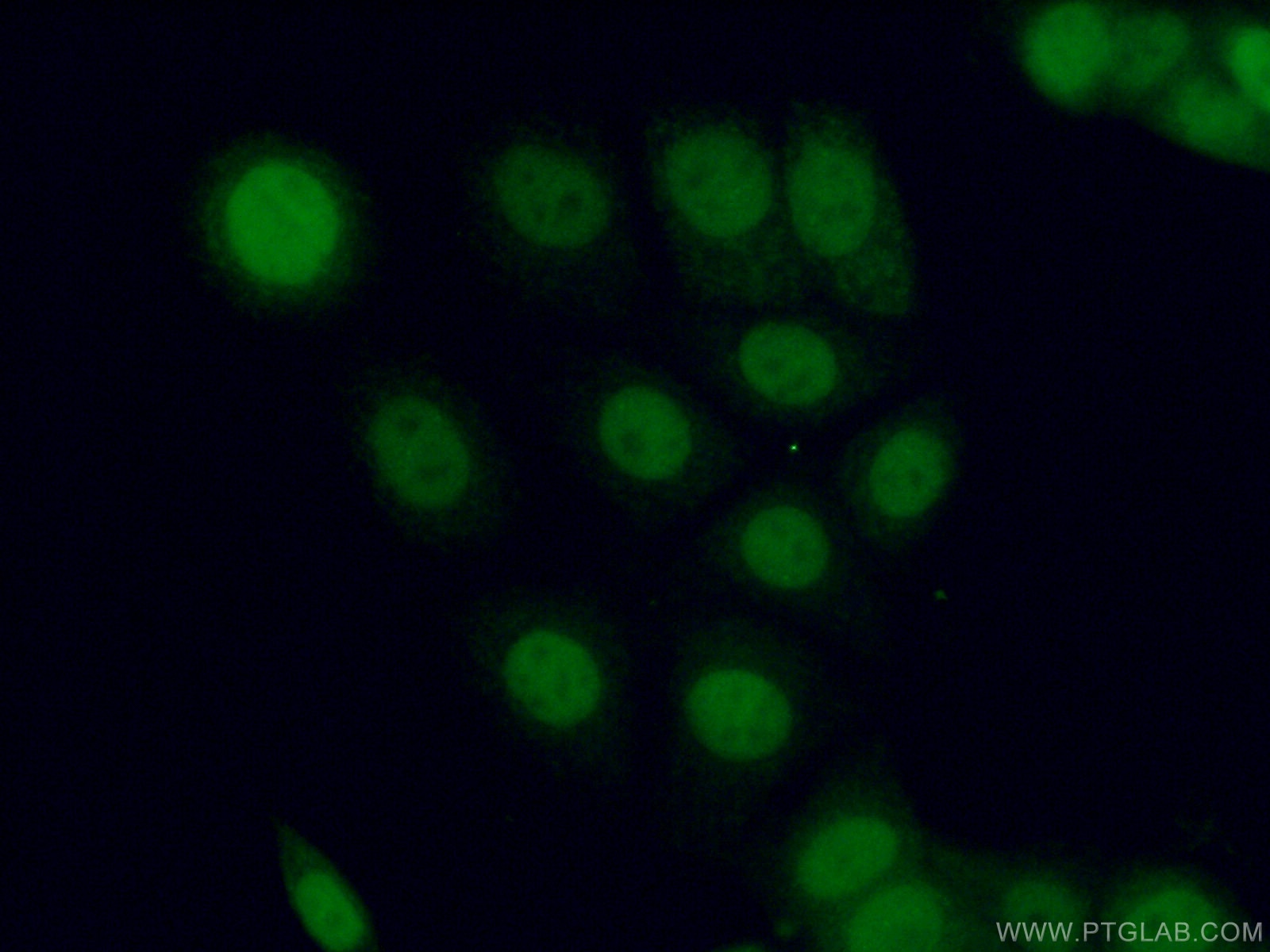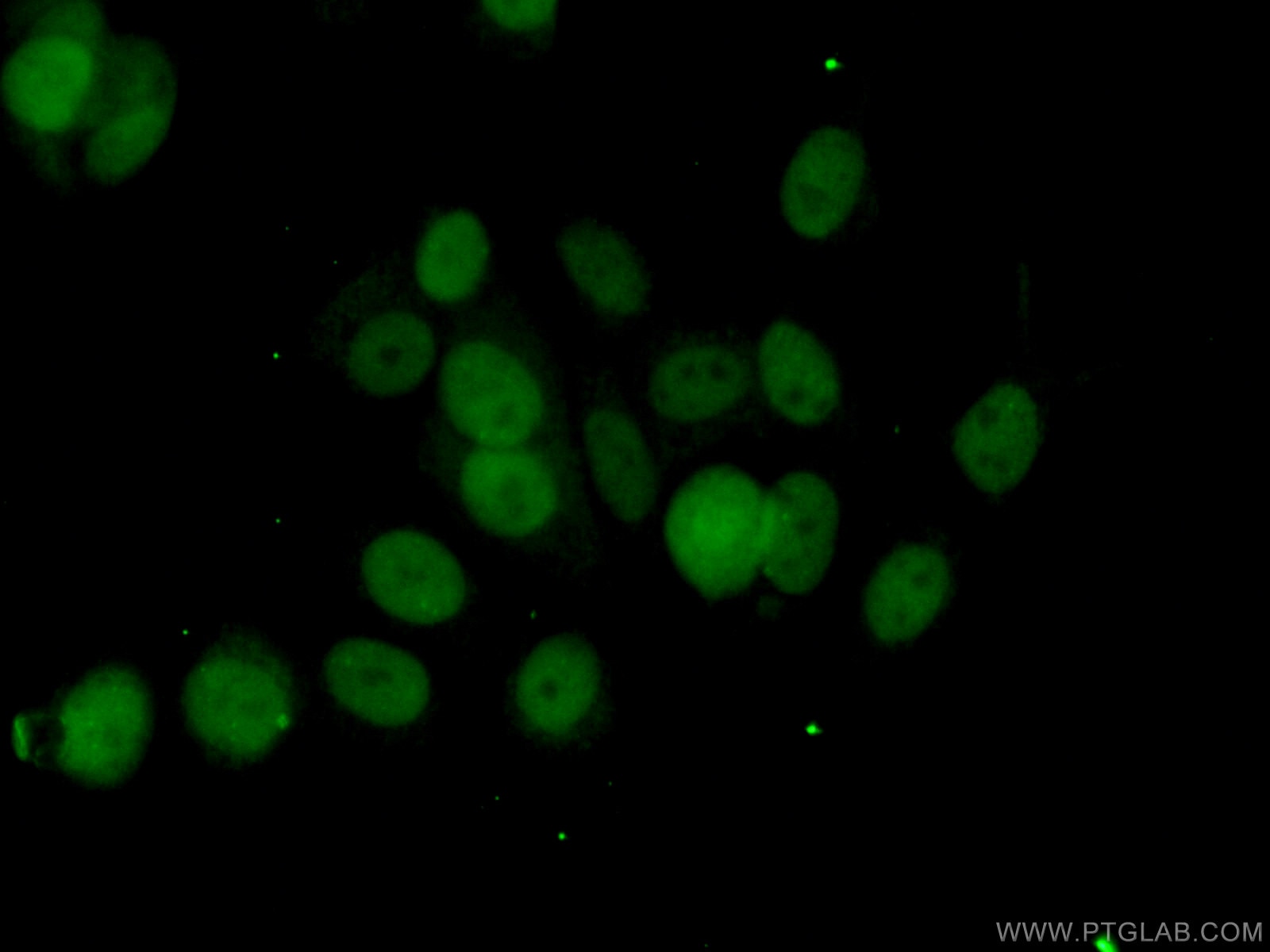Tested Applications
| Positive WB detected in | MCF-7 cells, mouse lung tissue, rat testis tissue |
| Positive IF/ICC detected in | MCF-7 cells |
Recommended dilution
| Application | Dilution |
|---|---|
| Western Blot (WB) | WB : 1:500-1:2000 |
| Immunofluorescence (IF)/ICC | IF/ICC : 1:50-1:500 |
| It is recommended that this reagent should be titrated in each testing system to obtain optimal results. | |
| Sample-dependent, Check data in validation data gallery. | |
Product Information
26532-1-AP targets PPM1D in WB, IF/ICC, ELISA applications and shows reactivity with human, mouse, Rat samples.
| Tested Reactivity | human, mouse, Rat |
| Host / Isotype | Rabbit / IgG |
| Class | Polyclonal |
| Type | Antibody |
| Immunogen | PPM1D fusion protein Ag24751 Predict reactive species |
| Full Name | protein phosphatase 1D magnesium-dependent, delta isoform |
| Observed Molecular Weight | 67 kDa |
| GenBank Accession Number | BC060877 |
| Gene Symbol | PPM1D |
| Gene ID (NCBI) | 8493 |
| RRID | AB_2880544 |
| Conjugate | Unconjugated |
| Form | Liquid |
| Purification Method | Antigen affinity purification |
| UNIPROT ID | O15297 |
| Storage Buffer | PBS with 0.02% sodium azide and 50% glycerol , pH 7.3 |
| Storage Conditions | Store at -20°C. Stable for one year after shipment. Aliquoting is unnecessary for -20oC storage. 20ul sizes contain 0.1% BSA. |
Background Information
PPM1D (also known as PP2Cd and WIP1) is a member of the PPM family, which is characterized by Mg2+/Mn2+-dependent activity and relative insensitivity to okadaic acid. The PPM1D gene is aberrantly amplified in a range of common cancers and encodes a protein phosphatase that is a potential therapeutic target (PMID: 17700519). This antibody can be detected two bands of 47 and 67 Kda.
Protocols
| Product Specific Protocols | |
|---|---|
| WB protocol for PPM1D antibody 26532-1-AP | Download protocol |
| IF protocol for PPM1D antibody 26532-1-AP | Download protocol |
| Standard Protocols | |
|---|---|
| Click here to view our Standard Protocols |
